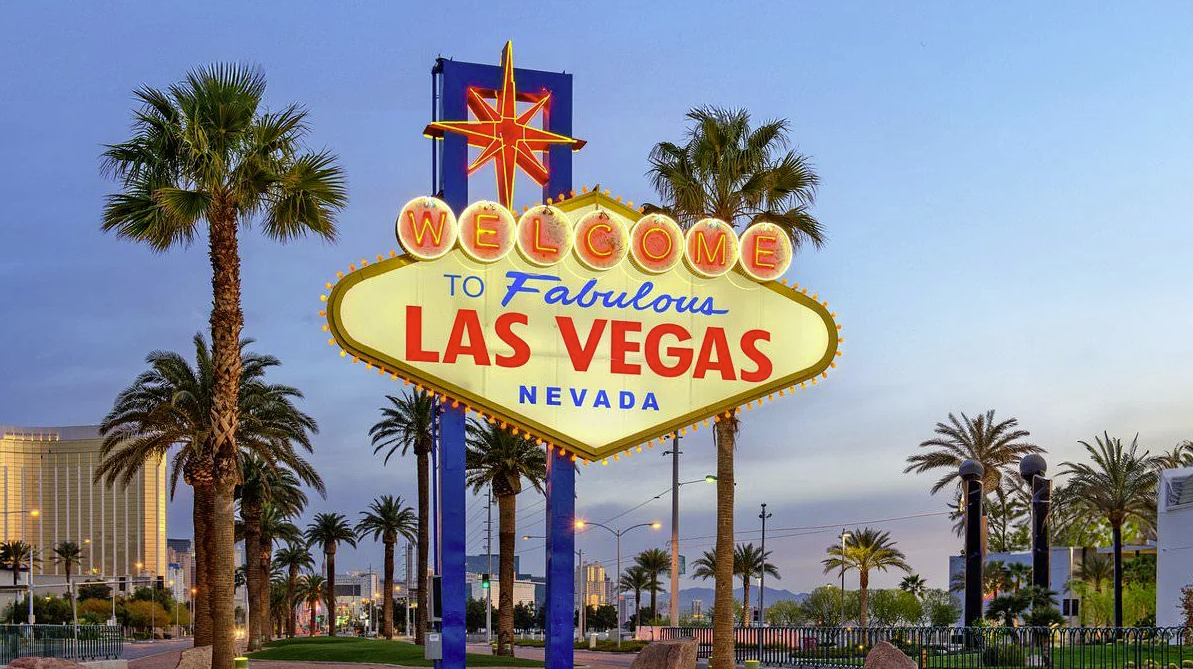Las Vegas real estate market faces historic inventory surge as buyer demand cools

The Las Vegas real estate market has reached a critical inflection point, with approximately $7 billion worth of homes currently listed for sale across the valley, marking one of the highest inventory levels in recent years. This dramatic shift from the seller’s market that dominated the past several years signals a fundamental change in the region’s housing dynamics.
Market reaches tipping point with surging inventory
According to Multiple Listing Service data analyzed by real estate professionals, the median home price in Las Vegas stood at $480,000 in May 2025, just shy of the all-time high of $485,000. However, this near-record pricing coincides with a substantial buildup of available properties that has fundamentally altered market conditions.
Current data shows inventory levels have increased dramatically year-over-year. In January 2025, the Las Vegas market had 7,177 homes for sale, representing a 49.3% increase from the 4,804 listings available in January 2024. By June 2025, total inventory had climbed to nearly 10,000 homes, with some reports indicating over 14,000 active listings when including all property types.
From seller’s paradise to buyer’s opportunity
The market transformation becomes evident when examining key metrics. The months of supply—a crucial indicator of market balance—has risen from approximately 2.2 months in mid-2024 to between 3.2 and 4 months by mid-2025. While still technically favoring sellers (a balanced market requires six months of inventory), this represents a significant shift toward buyer-friendly conditions.
ReMax Legacy agent Dale Jones observed the changing dynamics, noting that homes no longer sell as quickly as before. “If rates ever come down again, sales will pick up. I just pulled an inventory report, and we are at almost four months of inventory on the resale side of the market,” Jones explained. “So, while still a seller’s market, they are worried because their home is not selling as quickly anymore.”
Interest rates reshape buyer behavior
The Federal Reserve’s interest rate policies have fundamentally altered the purchasing landscape. With 30-year fixed mortgage rates hovering around 6.67% as of July 2025, many potential buyers have been priced out of the market or chosen to delay purchases. This represents a stark contrast to the sub-3% rates that fueled the pandemic-era buying frenzy.
The impact extends beyond simple affordability calculations. Higher rates have effectively frozen many existing homeowners in place, reluctant to trade their low-rate mortgages for new loans at double the interest rate. This “lock-in effect” has contributed to both reduced inventory turnover and changing buyer demographics.
Price cuts signal market adjustment
Perhaps most telling is the increase in price reductions across the valley. Data shows that 23.3% of homes experienced price drops in early 2025, up from previous years. This figure reflects sellers’ growing recognition that the market has shifted and that aggressive pricing strategies from the peak years no longer guarantee quick sales.
The luxury market has shown particular vulnerability, with homes priced above $1 million experiencing longer days on market and more frequent price adjustments. The median days on market has increased from 33 days in 2024 to 44-64 days in 2025, depending on the price point and location.
Investor activity reshapes market dynamics
Jones’s observation about “regular buyers” being replaced by investors highlights another crucial trend. Institutional investors and cash buyers have maintained a significant presence in the Las Vegas market, accounting for approximately 23% of all home sales. This investor activity has helped prevent more dramatic price declines but has also made it challenging for traditional buyers relying on financing.
Since 2000, investors have purchased approximately 131,710 homes in the Las Vegas Valley, with activity peaking in Q2 2022 when they acquired 4,229 homes. Major institutional players including Tricon Residential, Progress Residential, American Homes 4 Rent, and Invitation Homes have established substantial portfolios in the region.
National comparison reveals relative stability
Despite local concerns, Las Vegas remains relatively affordable compared to national averages. With a median home price of $480,000, the market sits roughly $40,000 above Redfin’s national median of $440,913. This positioning continues to attract out-of-state buyers, particularly from California markets where median prices often exceed $800,000.
However, the traditional narrative of Las Vegas as an affordable alternative to coastal markets has weakened as local prices have more than doubled since the pandemic’s start. This price appreciation, combined with higher interest rates, has eroded the affordability advantage that long defined the market.
Economic headwinds compound challenges
Broader economic uncertainties add another layer of complexity to the market dynamics. Consumer confidence indicators have shown volatility, while recession fears persist despite relatively stable employment numbers. These macroeconomic factors influence buyer psychology and purchasing decisions, contributing to the market’s cooling trend.
The local economy’s heavy reliance on tourism and hospitality also creates unique vulnerabilities. Any downturn in visitor numbers or convention business could quickly impact employment and housing demand, potentially accelerating the market correction.
Looking ahead: transition or transformation?
Real estate professionals remain divided on whether current conditions represent a temporary transition or a more fundamental market transformation. Some point to Las Vegas’s continued population growth and economic diversification as factors that will eventually reignite demand. Others see the current inventory buildup as the beginning of a more substantial correction after years of unsustainable price appreciation.
The market’s direction will likely depend on several key factors: Federal Reserve interest rate decisions, the broader economic trajectory, and whether inventory continues to accumulate faster than buyer absorption. For now, the Las Vegas real estate market has clearly entered a new phase—one that offers opportunities for patient buyers while challenging sellers accustomed to multiple offers and rapid sales.
As the market evolves, both buyers and sellers must adjust their strategies to reflect new realities. The days of immediate sales at asking price have given way to a more traditional market requiring competitive pricing, property preparation, and realistic expectations on both sides of the transaction.
Image Source: https://finance.yahoo.com/news/las-vegas-struggles-record-7-000005297.html
Category: Business. Real Estate
Subcategory: Market Analysis
Date: 07/12/2025




